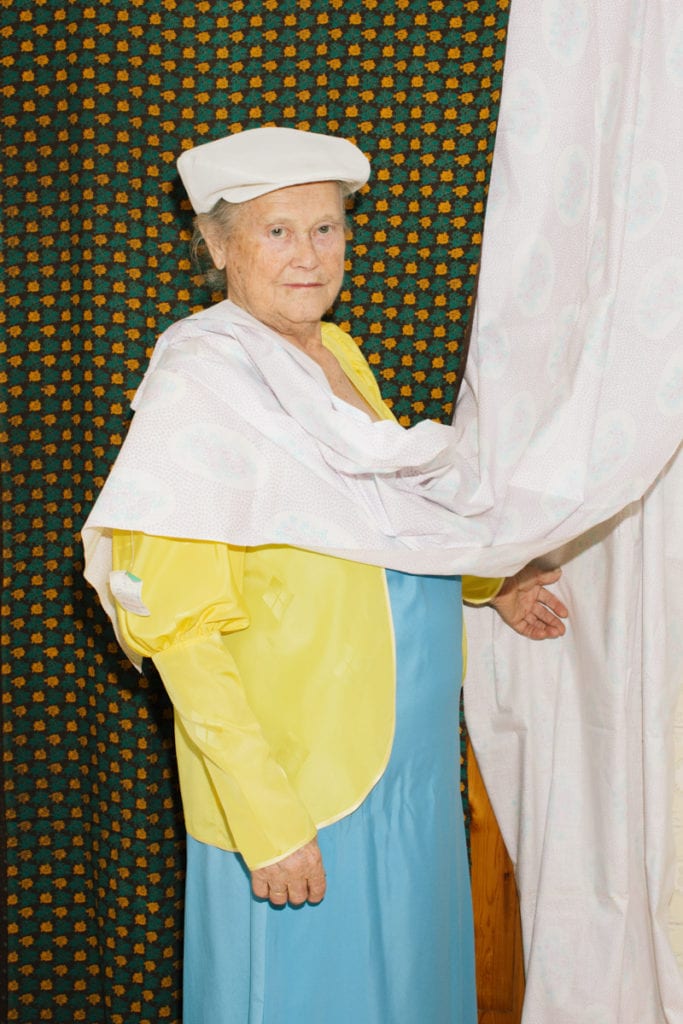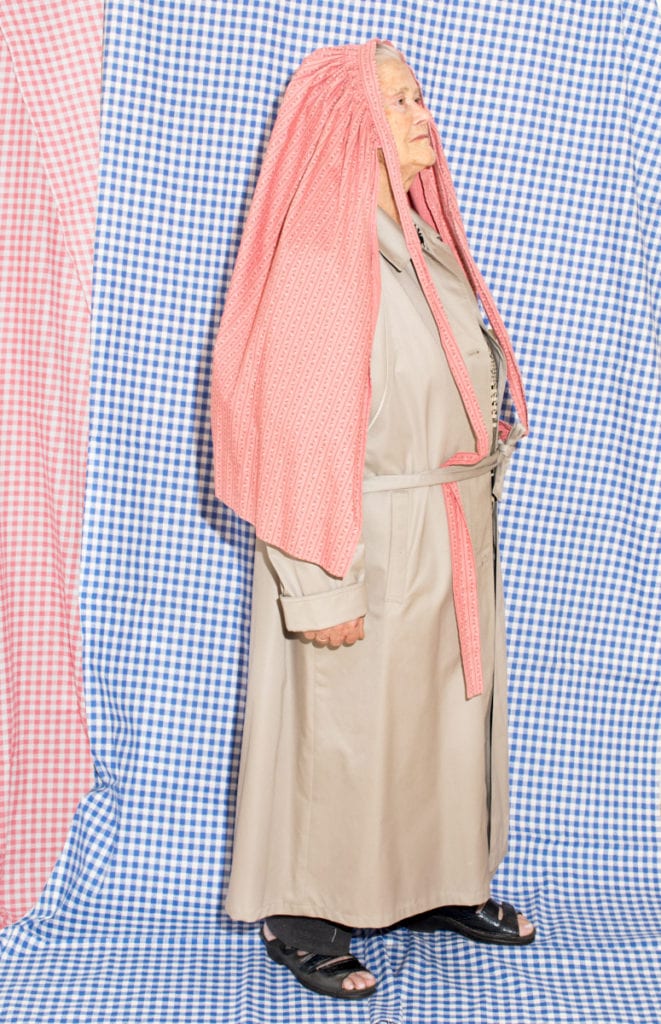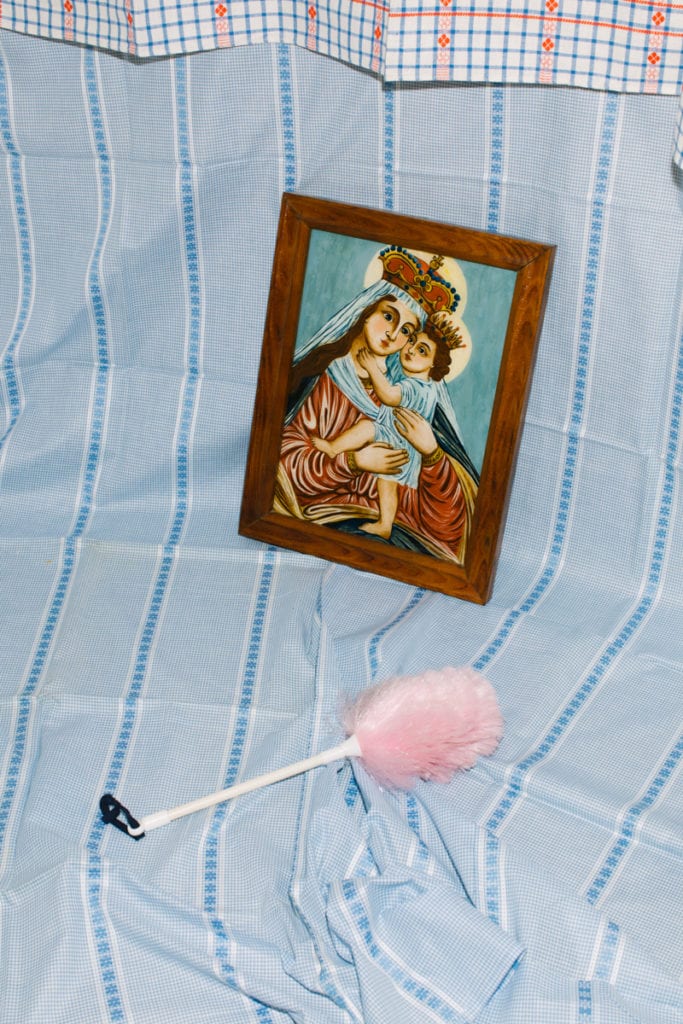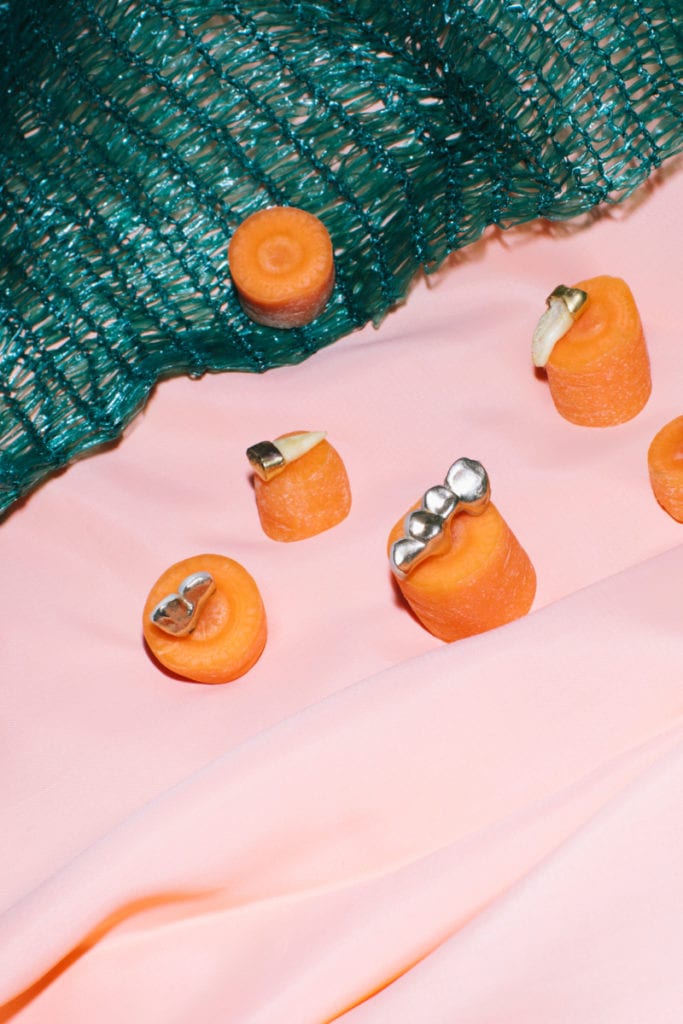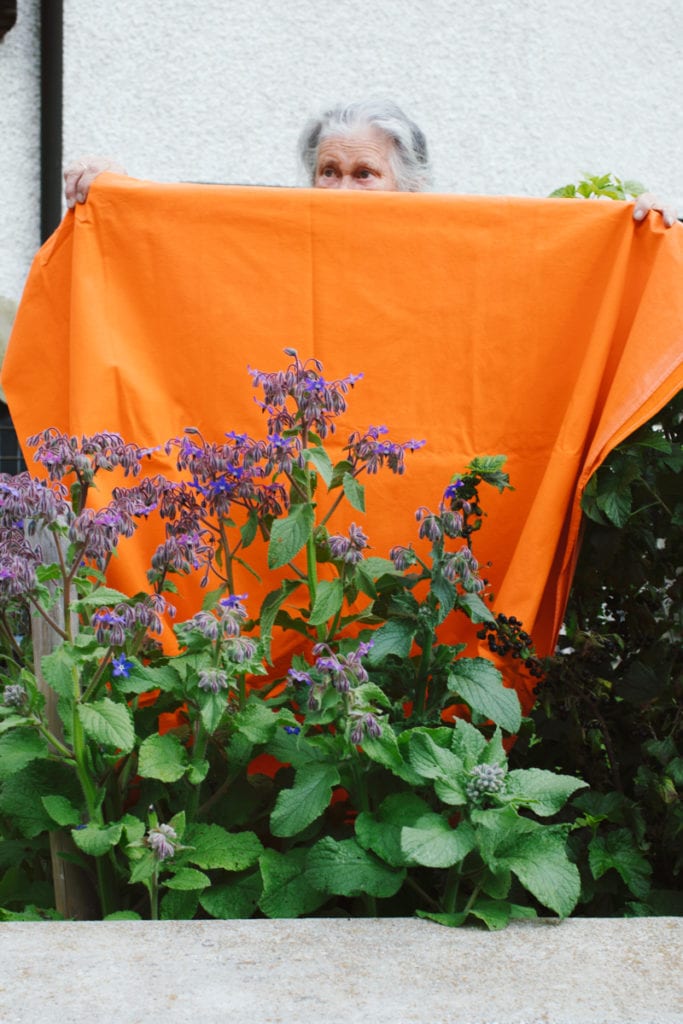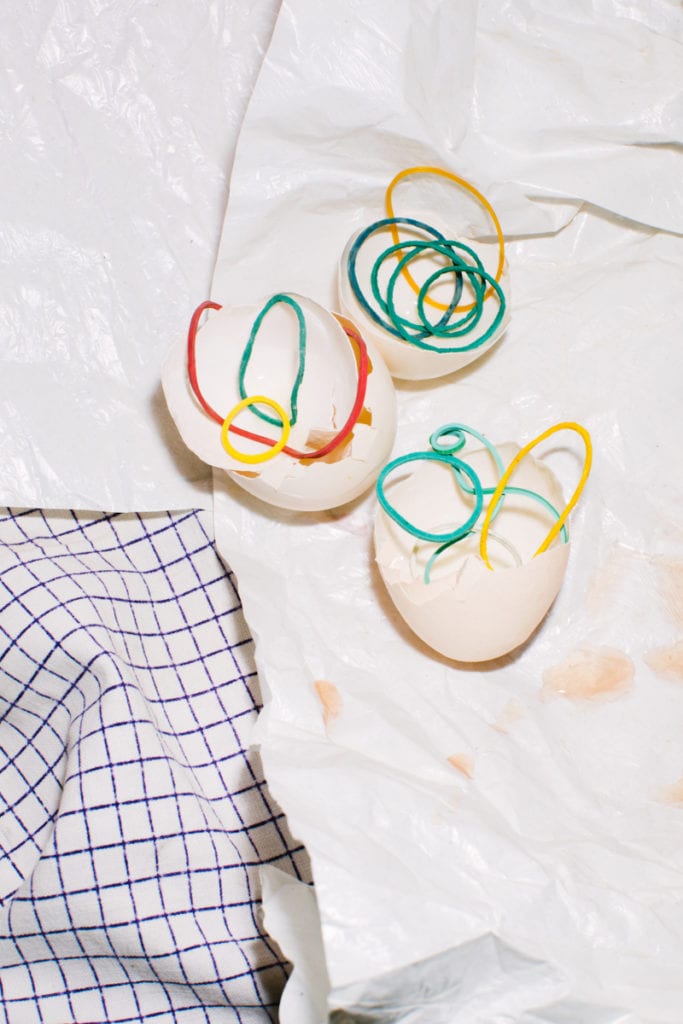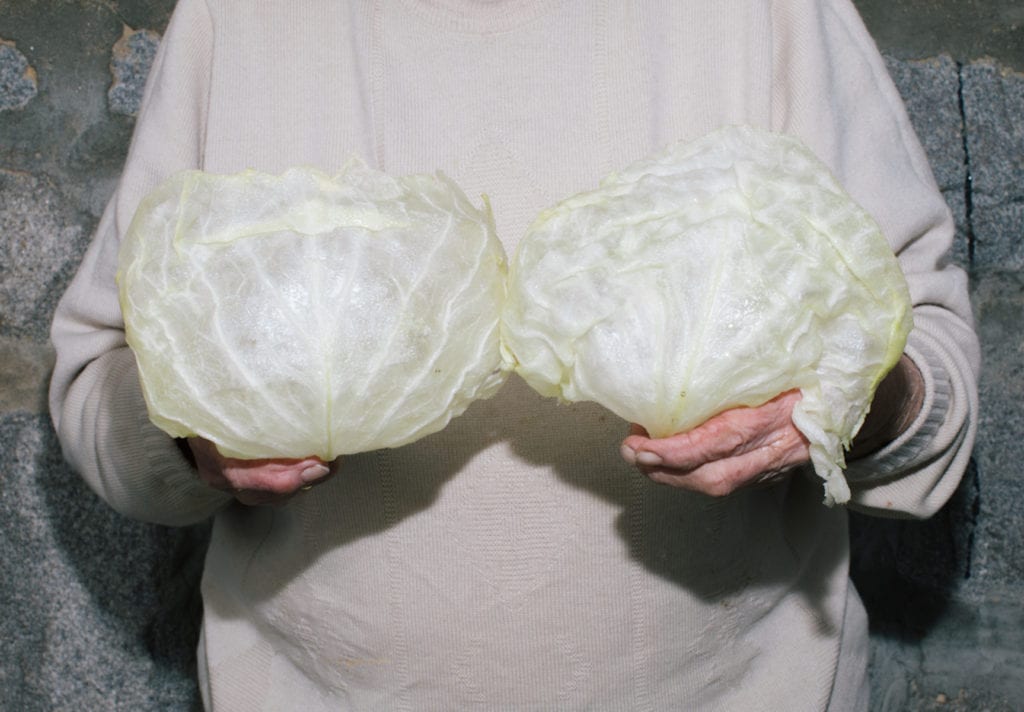The photographs that comprise because, Grandmother said it’s okay are not what one would expect. A series depicting a Grandma and Grandpa – and their house in a sleepy, Upper Austrian village – evokes images of dated interiors, replete with trinkets and memorabilia. But, Stefanie Moshammer does something different. “My Grandmother says, ‘I am just an old woman, nothing is interesting about me’,” explains Moshammer. “But, I can see beauty where she might not.”
The Austrian artist grew up in Vienna, but regularly frequented her Grandparent’s home. Her Mother was one of five children; they grew up on the first floor of the house, in which the clothes and belongings of their youth remain. “There is so much history,” says Moshammer. “It was the first place that I felt I wanted to document when I began to make work.” The photographer’s interest soon shifted, but since 2013, she has continued to document her grandparents whenever she returns.
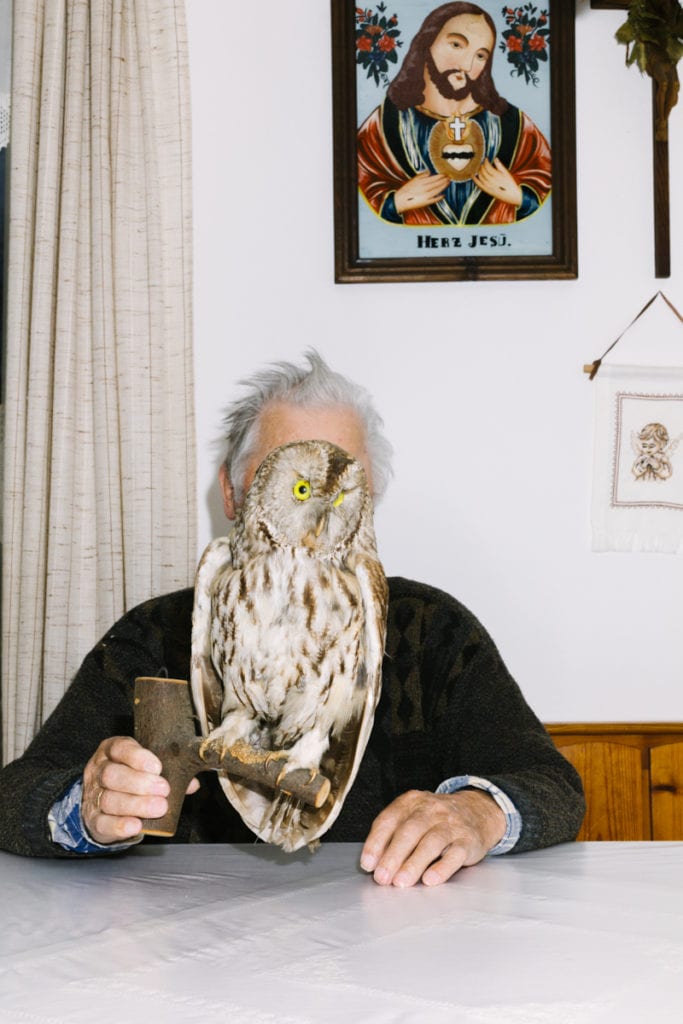
The physical separation from her family provided Moshammer with space for reflection. “I can look in as an outsider, even though it is my own family,” she explains. “… and not take things too seriously.” There is a melancholic undercurrent to the work with Moshammer having to confront her Grandparent’s aging year after year. But, more than anything, the series exudes a youthful playfulness. False teeth perch on a beetroot’s splayed leaves, milky white eggshells burst with rubber bands; gold and silver teeth sit atop roughly chopped carrots. And, at the center of the work, her Grandma and Grandpa — at ease in front of their granddaughter’s lens.
“I did not want to show aging in a sad way,” explains Moshammer. Her Grandparents assume whimsical poses and sport colourful costumes: a white beret complete with lemon yellow jacket; a trench coat and apron hat; a taxidermied owl for a mask. Moshammer is also clear that the project is not about the lives of her Grandma and Grandpa. “It is a mix of different subjects and layers, which come together to create my point of view,” asserts the photographer, who has developed a distinctive style that runs through all of her work. Vivid colours and clever framing – the ability to see the abstract in the everyday – that translate from a series exploring the fictions of love to a documentation of Rio De Janeiro’s favelas.
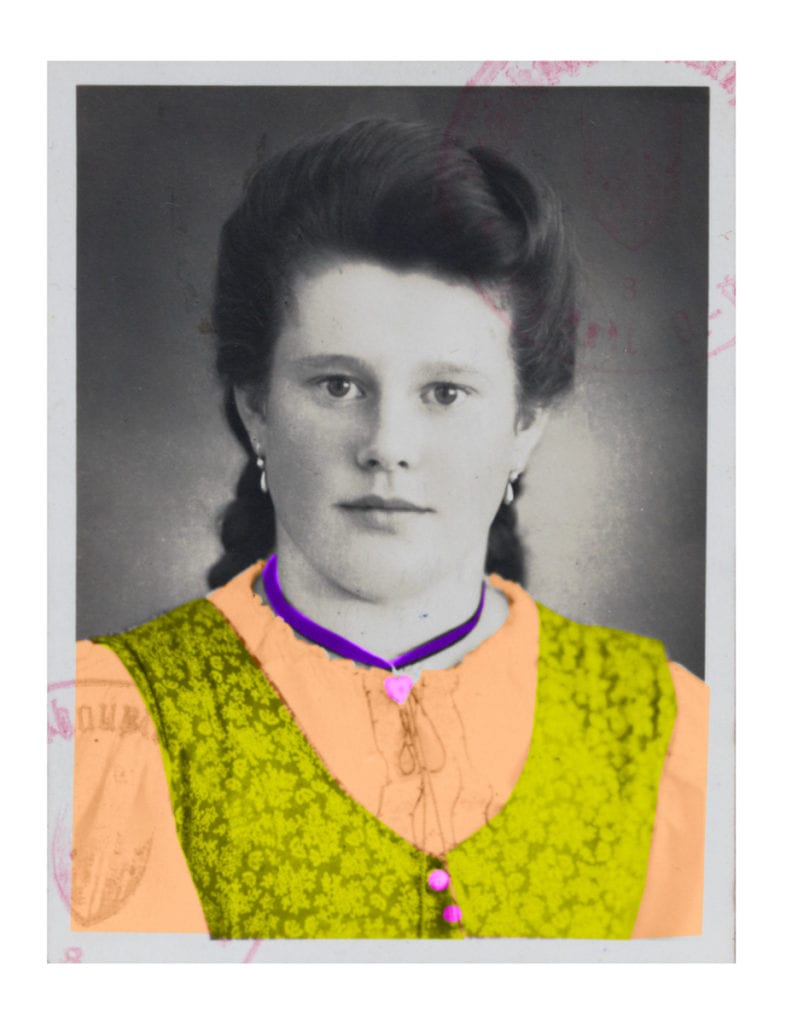
“My Grandmother says, ‘I am just an old woman, nothing is interesting about me. But, I can see beauty where she might not”
However, working on the project also allowed Moshammer to spend time with the pair in their old age. “It is interesting to understand the relationship of a couple who have been married for over 60 years,” she says. The photographer’s Grandfather owned a travel company, which ran travel buses. He would often be away from home for extended periods of time while her Grandmother looked after the children. “They were always so busy, then he retired, and they had time to really get to know each other,” she reflects. The work, then, embodies this chapter in their relationship: both older, but, engaging with one another in new ways.
Asked about photographing something so close to her, Moshammer replies: “It is harder to document something I am so familiar with because it is challenging to look at it from another perspective”. Over the years, the photographer has observed her perception shift and change: “I have seen things that I did not see before.” In that respect, the work also exists as a reflection of Moshammer’s life. “This is a place that has never changed,” she reflects, “it is me who is changing and that is why I feel differently”.
